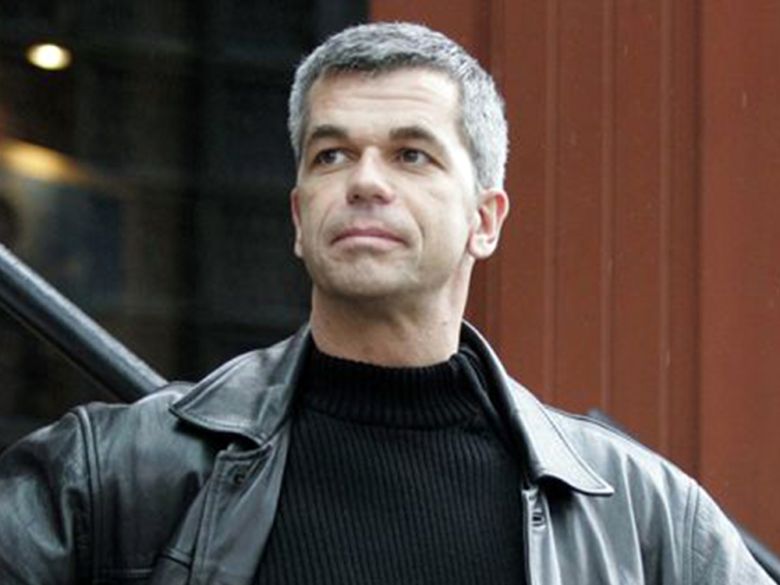OTTAWA — As Conservative leadership hopefuls prepare their applications to formally enter the race, they must fill in the party’s 42-page questionnaire. The Leadership Contestant Questionnaire requires candidates to declare they accept “the policies, principles, goals and objectives” of the Conservative Party. But the document could also be the tool used to ban controversial social conservative candidate Richard Décarie from running. The National Post’s Brian Platt, who obtained a copy of the questionnaire from the party, examines the issues — and some of the questions — Décarie faces.
The Décarie question
Décarie is backed by a veteran team of social conservative organizers — including Brad Trost and Russ Kuykendall — who plan to use Décarie’s network in Quebec to make him a serious contender for the leadership. In the 2017 leadership race, Trost finished a surprising fourth out of 14 candidates, surpassing many higher-profile candidates such as Michael Chong, Kellie Leitch, Lisa Raitt and Steven Blaney. But after Décarie appeared on national TV and claimed that being gay is a choice, he was roundly condemned by other leadership hopefuls, and many senior Conservatives called for him to be disqualified. “It is an unacceptable perspective for a mainstream party,” said Kory Teneycke, a former senior aide to both Stephen Harper and Doug Ford, in a CBC appearance shortly after Décarie’s comments. “My view is he should not be allowed to run. There has to be a line somewhere…. Nobody wants to be in a party that’s defined by bigotry.” (Members of Teneycke’s consultancy firm are working for leadership candidate Peter MacKay, though Teneycke says he’s staying neutral in the race.)
Who decides?
The decision on whether to allow Décarie to run will be made by the nine-person Leadership Candidate Nomination Committee. So far Décarie has not submitted an application, which also requires a $25,000 fee and 1,000 signatures from party members. Once he does, the nominations committee can then choose to interview him and make a decision on his candidacy. Party officials who have spoken to the National Post say they would only block a candidate reluctantly, as the party generally stands for open debate and free speech. However, the leadership race rules do say that a candidate must support “the founding principles of the Party as set out in the Leadership Contestant Questionnaire.”
Questionnaire: Have you carefully and thoughtfully read the Conservative Party of Canada Policy Declaration? Are there any policies or principles with which you disagree?
“The Conservative Party believes in restoring democratic accountability into the House of Commons by allowing free votes,” the policy declaration says. “On issues of moral conscience, such as abortion, the definition of marriage, and euthanasia, the Conservative Party acknowledges the diversity of deeply held personal convictions among individual party members and the right of Members of Parliament to adopt positions in consultation with their constituents and to vote freely.”
Questionnaire: Have you been accused of, or been engaged in, activities that promote discrimination or hatred against people on the basis of race, national or ethnic origin, colour, religion, age, sex, sexual orientation, marital status, family status, or disability?
This is the key question, though it will come down to interpretation. When Décarie repeatedly claimed on TV that being gay is choice, does that count as an activity promoting discrimination or hatred based on sexual orientation? In the CBC interview, Teneycke referred to Décarie’s comments as “naked bigotry,” and some party officials may feel the same way.
Questionnaire: Have you ever written anything that has been published or widely distributed through the internet or other means?
The questionnaire goes on to list examples of what would count, including “newsletters, blogs, internet message boards,” and so on. Party officials may dig through everything Décarie has published over the years to see if there is anything else that could disqualify him. Along with his recent TV appearances, Décarie has also regularly appeared on Quebec talk radio, though the question only specifies written material.
Questionnaire: Is there anything in your personal, professional or business background that could cause embarrassment for the Party, hinder your ability to perform, adversely affect your candidacy or the Party, or demonstrate a lack of integrity, if it became public knowledge during the campaign or if you should become a Member of Parliament and leader of the Party?
This question addresses something not already known, so perhaps it doesn’t apply to Décarie — at least as it relates to his comments on TV. Still, it raises the prospect of something causing “embarrassment for the Party,” and that’s exactly why many don’t want to see Décarie in the race. They see his TV interviews as damaging for a party that wants to present a more tolerant and accepting public face. Ultimately, there is no question the party has the right to bar him. Near the end of the questionnaire, the candidate must accept this clause: “I acknowledge and agree that the Leadership Election Organizing Committee has authority to disallow my candidacy on any grounds it sees fit, and which shall be final and binding.”
• Email: bplatt@postmedia.com | Twitter: btaplatt



























